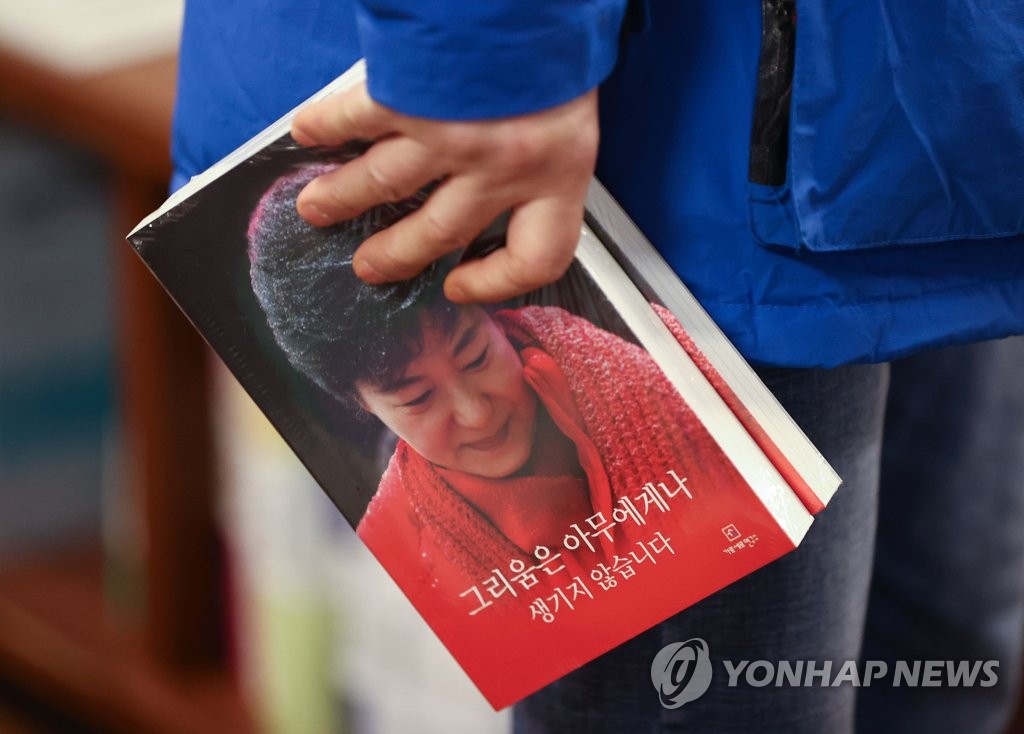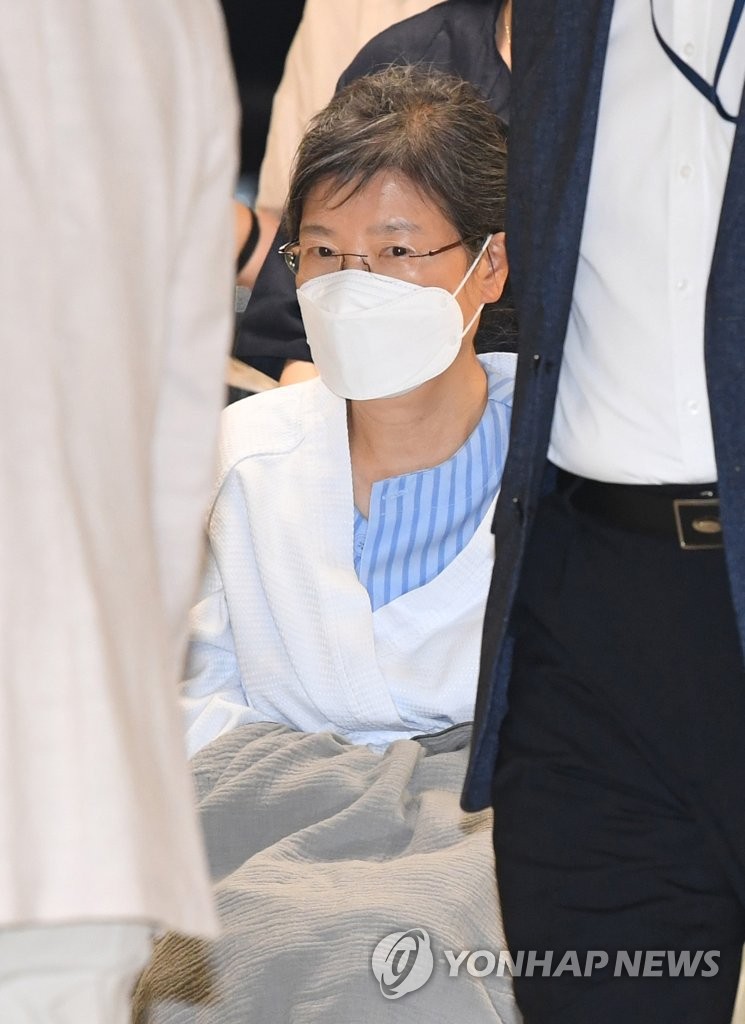- California Assembly OKs highest minimum wage in nation
- S. Korea unveils first graphic cigarette warnings
- US joins with South Korea, Japan in bid to deter North Korea
- LPGA golfer Chun In-gee finally back in action
- S. Korea won’t be top seed in final World Cup qualification round
- US men’s soccer misses 2nd straight Olympics
- US back on track in qualifying with 4-0 win over Guatemala
- High-intensity workout injuries spawn cottage industry
- CDC expands range of Zika mosquitoes into parts of Northeast
- Who knew? ‘The Walking Dead’ is helping families connect
Ex-President Park says she did nothing “ugly” for personal gain
Ousted former President Park Geun-hye defended herself in a series of letters written after she was imprisoned for corruption in 2017, saying she never did anything as “ugly” as abusing her office to help others for personal gain.
Park published the letters in a book titled “Not everybody feels a longing,” which was published Thursday just hours before she was set free under a presidential pardon.
The notes are her responses to missives she received from supporters during her four years and nine months in prison following her impeachment, removal from office and conviction on charges of corruption.



A customer holds a copy of former President Park Geun-hye’s new book, “Not everybody feels a longing,” at a bookstore in Seoul on Dec. 30, 2021. (Yonhap)
“What I can say with certainty is that I never did anything as ugly as helping another’s interests with a personal motive in mind,” the 69-year-old former leader wrote.
Park was accused of letting her close friend, Choi Soon-sil, run state affairs from behind the scenes and colluding with her to extort money from big businesses including Samsung.
Park denied the charges but was sentenced to 22 years in prison following months of nationwide candlelight rallies demanding her ouster.
Her letters made clear she stood by her claims of innocence and there was no explicit expression of regret or apology for the turmoil she caused.
“Even if it takes time, the truth will be revealed without fail, and I believe even a tangled ball of thread will unravel itself strand by strand,” she wrote. “Even if something appears legitimate from the outside, if there is no justification for it in reality, we cannot call that the rule of law.”
Park shared her thoughts on her trial and the many news reports and rumors that swirled around the time of her impeachment, saying that was a time when “no matter what I said, (people) would shut their ears and eyes.”
“I was greatly disappointed to see certain news outlets irresponsibly carrying fake news and unconfirmed reports mainly on gossip and yet not once expressing remorse for their false reports,” she wrote, adding that she believes the news media will one day have to take responsibility for such “irresponsible reporting.”
Park described her dismay following the prosecution’s issuance of an additional warrant for her arrest in October 2017, saying the decision led to her refusal to attend future court proceedings.
“The reason I endured the murderous court schedule four times a week despite the enormous humiliation was because of the slightest faith I had in our judiciary to determine right from wrong on the side of truth,” she wrote.
“When I saw the additional arrest warrant issued for reasons that made no sense, it occurred to me that it was a formality for a decision that had already been made.”
Park’s release has drawn attention for its potential impact on the March 9 presidential election amid speculation it could split the conservative vote between supporters of conservative candidate Yoon Suk-yeol of the main opposition People Power Party and detractors who blame him for Park’s imprisonment.
Yoon is a former prosecutor who played a key role in the investigation into the corruption scandal and was chief of the Seoul Central District Prosecutors Office when the prosecution issued the additional arrest warrant for Park.
In the letters, Park broke her silence on her whereabouts during the first seven hours of a deadly ferry sinking in April 2014, when she was in office.
Critics have lambasted her for her apparent absence from duty at the time, arguing many more lives could have been saved had she responded properly.
“What happened on the day the Sewol sank was so shocking that it is very difficult for me to recall it now,” she wrote, referring to the name of the ferry. “I was not feeling well that day and was briefed (on the sinking) at the official residence.”
“Regarding the situation at the time of Sewol’s sinking, there were bizarre rumors about me and malicious slander, but I believed in the power of the truth and kept silent,” she continued. “I did not try to hide anything, nor was there any reason to. After much time passes, I believe it will become clear which was the truth.”
Park is a daughter of former authoritarian President Park Chung-hee, and in her letters, she spoke of her longing for her parents, both of whom were assassinated.
“I miss my father more with the passing of time,” she wrote. “A month from now is the anniversary of my father’s death, but once again, I don’t think I’ll be able to visit his grave.”
She wrote that although there was a time she envied an “ordinary life,” she later resolved to live her life in the service of her country and the people.
“Judicial judgment of me will eventually come to an end, but a different and new journey will then begin,” she wrote.











